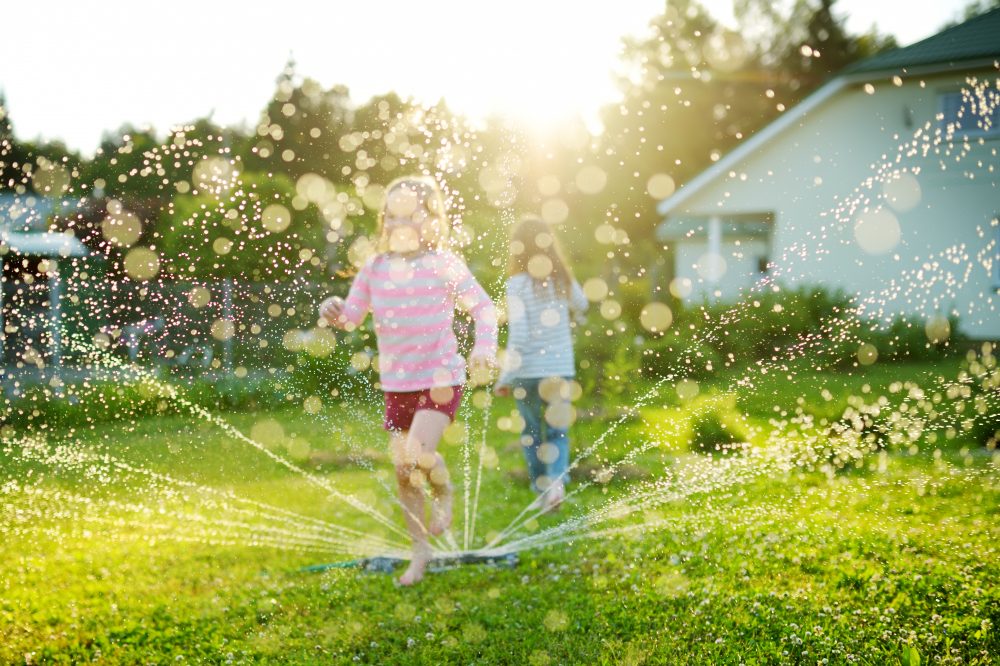Managing Anxiety While the Kids are Home from School
Summertime is often associated with lounging by the pool, children laughing by lemonade stands and the bliss of sleeping in with flexible schedules. For a parent of school-age children, this picturesque characterization is rarely so serene. Add on trying to manage anxiety in the midst of summer chaos and you may have a recipe for disaster. Here are some simple tips to help you keep your anxiety from derailing the joyful summer you want to cherish with your kids.

1) Find a Summer Anchor
Before you get lost in the details of how to shuffle your kids to their various summer activities, managing screen time, and being the referee for sibling arguments, zoom out to see your summer with your kids in a big picture view. What is one thing you want to accomplish? How do you want to feel at the end of the summer when the kids go back to school? What is one thing you could do as a family that would bring you joy? Pick just one thing and allow that to be your summer anchor. Often our anxiety is made worse by the feeling that somehow we are failing our kids. We can get lost in a guilt spiral that leads us to believe we are responsible for making our children feel like every day is summertime magic. Giving ourselves just one thing to feel, accomplish, or experience can help keep the big picture focus when summer gets crazy.
2) Mindful Breathing
We all logically know that breathing is essential for life, but it is amazing how many times we forget to truly focus on ensuring that we have enough oxygen. A study in Utah showed that people living at higher altitudes are often overprescribed medications to treat depression and anxiety when they were actually suffering from hypoxia (a lack of oxygen). Our brains are uniquely more advanced than other creatures, but when we overlook our own basic survival needs, we inadvertently cause our brain to panic, triggering increased anxiety. Taking a few minutes to breathe deeply at least once a day can significantly reduce feelings of anxiety. While you breathe, use the mindful practice of concentrating on feeling your lungs fully fill with air and then completely deflate. Adding a simple mindfulness practice, such as this one, increases the benefits of the addition of oxygen to your body.
3) Exercise
Most of us don’t want to hear for the millionth time that we should be exercising more. Luckily, the intensity and frequency of exercise are not the most crucial elements to reducing your anxiety. Studies show that exercise is most beneficial for anxiety reduction when you simply take a walk outside. Don’t start imagining the power walking that your mom used to do. A study from Japan showed the healing power of a leisurely nature walk. Walking helps your body produce the same endorphins that a hard workout will give you, in addition to increasing levels of oxytocin, the connection hormone. Taking in the beauty of nature and allowing your body to absorb some vitamin D from the sunshine, will help you to feel restored. You don’t have to visit an exotic rainforest to enjoy nature. Taking a walk with your kids around the block will do the trick. Bonus strength training if you’re pushing a stroller!
4) Increase Water Intake
Similar to the problems created by lack of oxygen, dehydration can also be the root cause or trigger to your anxiety. Many Americans unknowingly suffer from dehydration, causing their bodies to go into a self-protection mode. Our bodies simply cannot function well without enough water. Dehydration can cause an increase in symptoms that trigger panic attacks, such as increased heart rate and muscle weakness. The good news is that this is a relatively easy fix. Start by keeping a water bottle with you next to your bed and drink a full bottle before you have your morning coffee. Even increasing your water consumption by just one bottle of water a day will help your body to improve its function.
5) Limit Screen Time
Screen time limits are not just a great idea for kids; they are essential for parents as well! It’s tempting to use Instagram or Facebook to zone out when the kids are driving you crazy or you finally get a moment of peace when the kids are in bed, but there is a cost to pay for heavy use of social media. One study tracked Facebook users from 2013 to 2015 concluding “that using Facebook was associated with a likelihood of diminished future well-being.” Social media can become an impulsive habit that sucks our time away from us. Losing precious time is the last thing we want when our kids are growing up right before our eyes. You don’t have to take a social media sabbatical all summer to see benefits. Try doing a mindful breathing exercise (as detailed above) before you check your notifications so that you are approaching your social accounts from a healthy, grounded place. Remember that your summer anchor is probably not to spend more quality time with your smartphone.
Managing anxiety can be tricky but these simple tips can help you integrate smart strategies into your everyday life. Now when summer chaos kicks in, you have tangible action steps to help you stay rooted in what is uniquely important to you and your family. Fill this summer with positive memories and connection so that you can start the school year fully recharged.
If your anxiety feels unmanageable, please don’t hesitate to reach out to our team of professionals.
